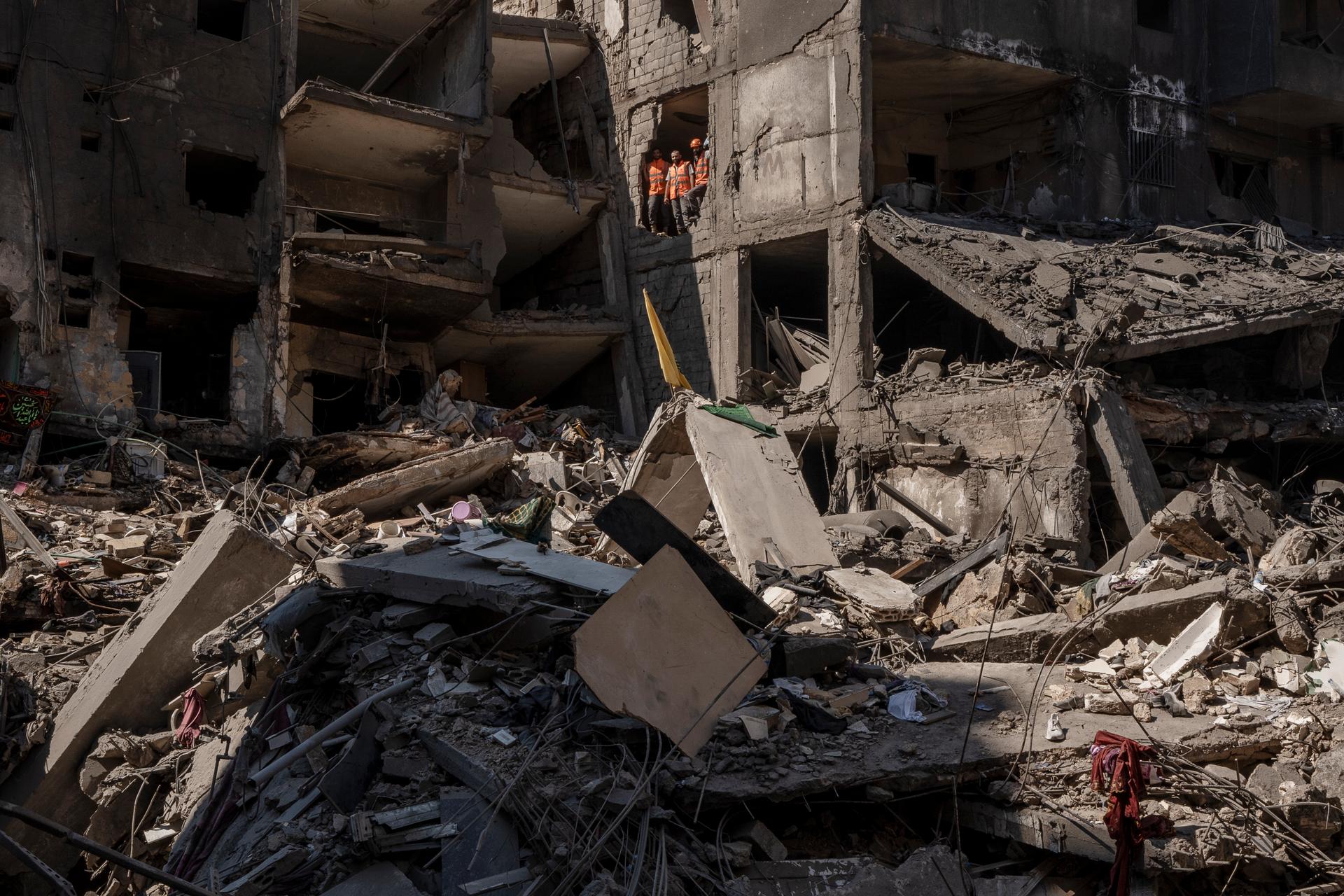Supported by three men, a weeping father, his hand over his heart, called out to his daughter from a mound formed by a ruined building in Dahiyeh, Beirut’s southern suburbs, on Sunday, September 29. “Speak to your father, send me a sign,” urged the man in front of a yellow building that collapsed under the blast of the strikes that pulverized below, on Friday, a block of six buildings, under which were the headquarters of the Shiite party Hezbollah and its leader, Hassan Nasrallah.
The bodies of his daughter and his wife were still trapped in the concrete carcass. As are those of the uncle, aunt and two cousins of Hicham (first names changed at the request of the interviewees), who came to collect their belongings from the rubble. Civil defense teams have not yet begun searching for civilian victims in the buildings heavily damaged by the blast, and in the rubble of those reduced to dust.
On Saturday, the body of the “sayyid” (the honorary title Nasrallah adorned himself with as a descendant of the Prophet) Nasrallah was found in the depths of the underground bunker. Confirmation of his death by Hezbollah sent shockwaves through the country, which was frozen in feverish anticipation. In the grocery store at the entrance to the Shiite district of Khandak Al-Ghamik, in central Beirut, the cashier had been unable to hold back her tears since the announcement of his death. Many Shiites had developed a feeling of intimacy with the charismatic leader.
All around the grocery store, time seemed suspended. Mute, grim-faced men sat on plastic chairs, waiting for instructions about the ceremonies. One man had bandages on each of his hands and his face, like many Hezbollah recruits injured by the September 17 explosion of their pagers, due to sabotage blamed on Israel. Men stood on the porch of a building, safe from stray bullets. Shots echoed through the air at regular intervals, in tribute to the “martyr.”
Young people on edge
In the heart of the neighborhood, the atmosphere was electric. Young people were on edge, balanced between anger and a feeling of abandonment. They had yet to receive any instructions from the Shiite party leadership. Local Hezbollah officials were not sure they could handle them. Journalists were strongly urged to stay away at this time of affliction, as an outburst could occur at any moment. The sense of power and pride that Nasrallah projected within the Shiite community was giving way to vulnerability.
“Sayyid Nasrallah’s death won’t break the movement, but it has broken our hearts. He was everything to us and everything to Lebanon, like a father, like an idol. We grew up with him. He showed us the way. They killed him because his goals were great,” said Hussein, his eyes reddening. Hussein lost nine members of his family in the strikes on the southern suburbs last week. The 21-year-old Hezbollah volunteer was distributing water to displaced persons who took refuge in Martyrs Square in central Beirut on Friday night.
You have 69.5% of this article left to read. The rest is for subscribers only.
